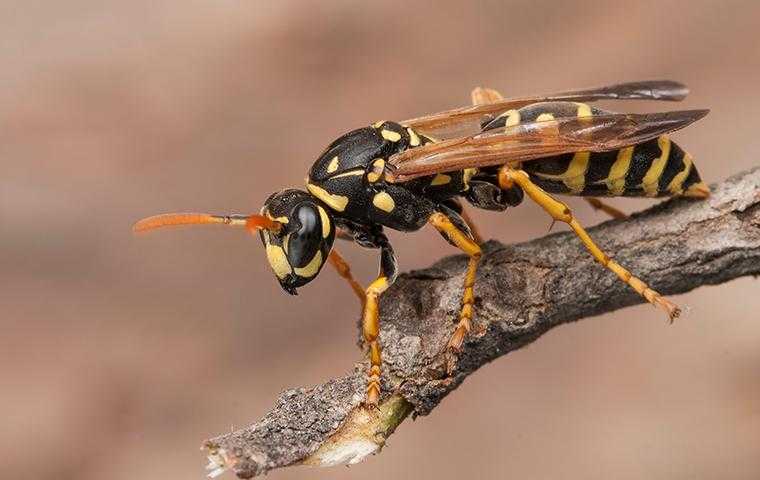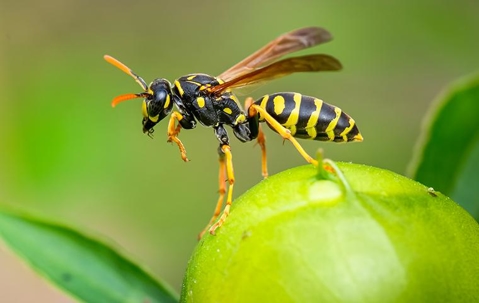Stinging Insect Identification Guide
What are stinging insects?
As the name suggests, stinging insects have stingers that extend off the end of their abdomens. They use their stingers to defend themselves or their colonies. Predatory species of stinging insects use their stinger for hunting prey to feed their developing larvae. Bees, wasps, hornets, yellow jackets, mud daubers, and carpenter bees are all examples of stinging insects that live and invade Greater Cypress properties.

Are stinging insects dangerous?
You should always try to avoid stinging insects. They are capable of delivering painful stings to people, and their venom is strong enough to trigger serious allergic reactions or anaphylaxis. When stinging insects place their nest in a high-traffic area in your yard or on your house, the chances of being stung increase dramatically.
In addition, some species of stinging insects like the carpenter bee can cause damage to our structures. Carpenter bees tunnel through and nest inside wood structures. Removing stinging insect nests from your property should always be handled by a trained professional.
Why do I have a stinging insect problem?
Like other species of insects and other pests, stinging insects won't hesitate to create a nest on any property that offers them with their basic needs: food, water, and shelter. Our yards often provide plenty of sheltered areas for them to place their nests and places to forage for food.
Stinging insects, depending on their species, feed on a variety of things, including other insects, plant nectar, sweet liquids, and proteins. They forage for food in our gardens, trash cans, recycling bins, compost piles, and outdoor eating areas.
Where will I find stinging insects?
Depending on their species and environment, stinging insects nest in a variety of places:
- Most wasps and hornets like to nest up off of the ground in trees, under decks, in door frames, under roof eaves, or on utility poles.
- Carpenter bees build their nests in dead trees and stumps, old fence posts, in woodpiles, and under rocks. They also nest behind window and door frames, under decks, and in the wood found around pipes.
- Mud daubers build their nests underneath overhangs or within tight crevices. Their nests are often constructed under roof eaves, under porches and decks, in doorways, or rock crevices.
- Yellow jackets are ground nesters. They build their nests under woodpiles, bushes, between rocks, inside ground holes, or in the abandoned nests of small animals.
How do I get rid of stinging insects?
The best solution to your problem with stinging insects is a professional solution. At TNT Home & Commercial Services, we take our time and provide the thorough services needed to solve pest problems once and for all. Our central focus is to ensure that our customers are satisfied, and their property is free of pests! For more information about protecting your Greater Cypress home or business from stinging insects and our area's other common pests, reach out to TNT Home & Commercial Services today!
How can I prevent stinging insects in the future?
More than an inconvenience, pests can be dangerous and cause a lot of damage. In addition to our professional home pest control and commercial pest control services, use the following tips to keep stinging insects out of your home:
- Place garden areas away from the outside walls of your house.
- Limit the amount of flowering vegetation you have planted on your property and near your home.
- Remove fallen trees, stumps, woodpiles, and other debris from your yard.
- Cut branches back away from the exterior of your home.
- Fill in ground holes.
- Wooden structures on your property should be painted, stained, or otherwise treated, to make them less attractive to carpenter bees.
- Remove standing water from your property.
- When eating outside, make sure to keep food and drinks covered, and clean up immediately after finishing eating.
- Avoid wearing heavily scented perfumes, deodorants, or lotions when working or spending time outdoors.

